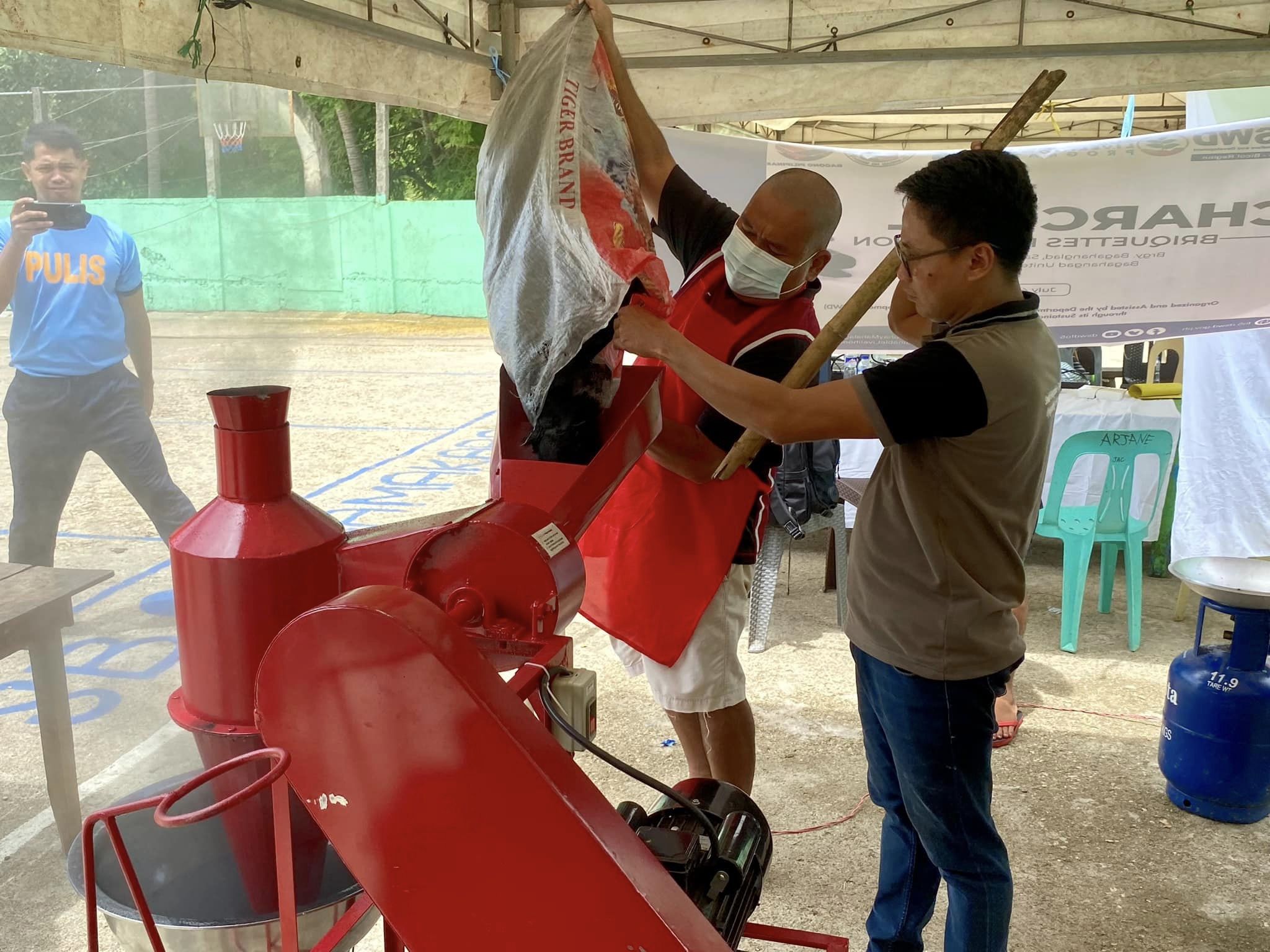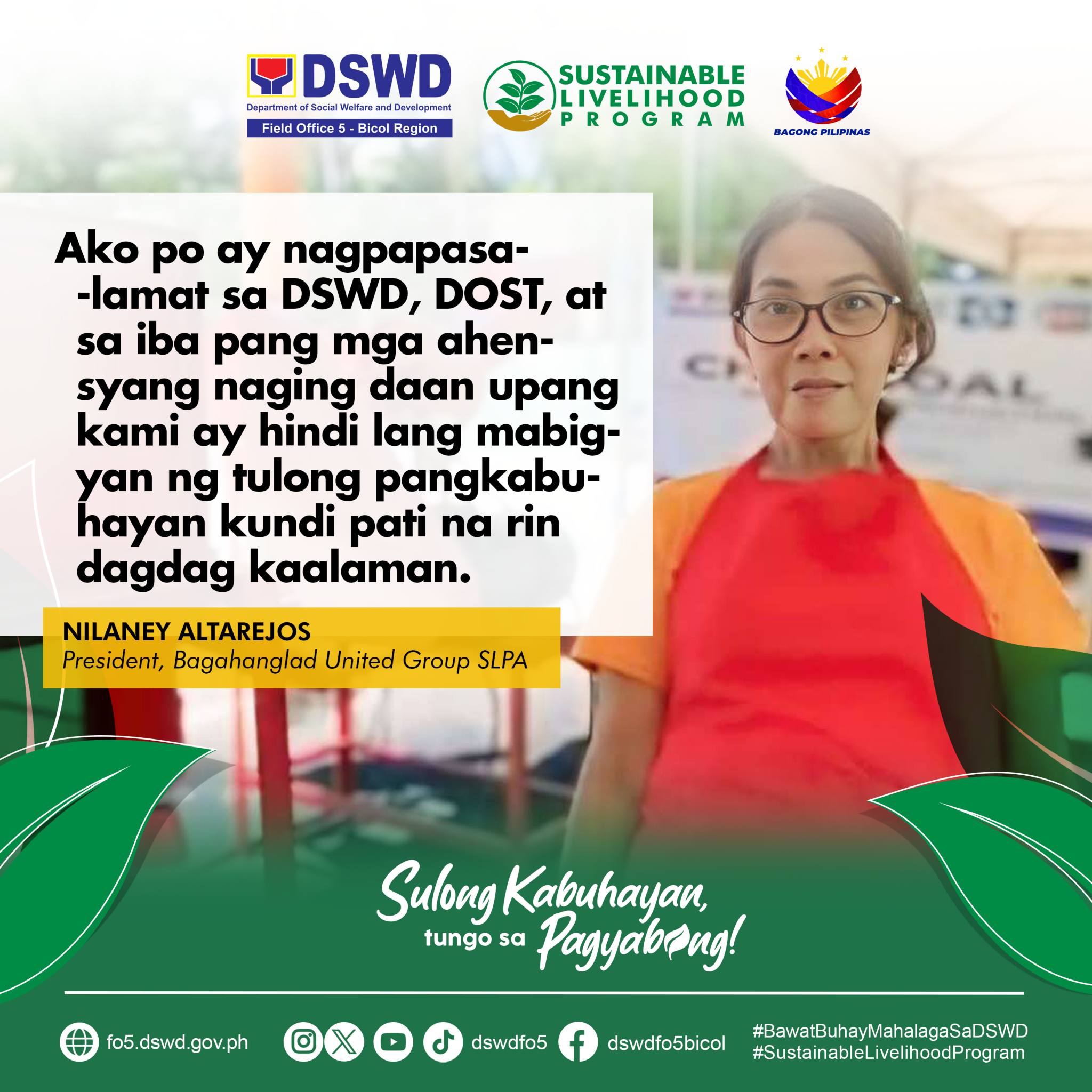
| An SLP participant practices the technical aspects of charcoal briquette production during training in San Jacinto, Masbate. |
San Jacinto, Masbate — In a dynamic effort to foster local entrepreneurship and environmental stewardship, DSWD Bicol’s Sustainable Livelihood Program has partnered with the Department of Science and Technology (DOST) and the Forest Products Research and Development Institute (DOST FPRDI). Together, they orchestrated a groundbreaking Charcoal Briquettes Skills Training for the Bagahanglad United Group SLPA, transforming innovative ideas into actionable skills for a brighter, greener future.
The Bagahanglad United Group SLPA received a PHP 300,000 seed capital fund from DSWD, fueling their journey from concept to creation and empowering the community with sustainable skills and economic opportunities.
The Charcoal Briquettes Skills Training represents a significant milestone in the Sustainable Livelihood Program (SLP), aiming to transform local communities by integrating economic and environmental benefits. The program’s core objective is to equip participants with the skills necessary to produce high-quality charcoal briquettes, a sustainable alternative to traditional charcoal.
Economic Impact: Empowering Local Livelihoods
The training program offers multiple economic benefits for the Bagahanglad United Group SLPA and the broader community. By introducing charcoal briquette production, the initiative opens new avenues for employment and revenue generation.
Participants gain hands-on experience in creating and marketing these eco-friendly products, leading to increased economic opportunities within the community. This venture is expected to stimulate local economic activity, providing a steady income stream and fostering self-reliance among members.
Environmental Advantages: A Step Towards Sustainability
Beyond its economic impact, the training program offers notable environmental benefits. Charcoal briquette production is an innovative approach to waste utilization, repurposing agricultural residues and other biomass materials that would otherwise contribute to environmental degradation.
By promoting sustainable resource use, the training aligns with broader environmental goals, such as reducing deforestation and conserving natural resources. The adoption of briquettes as an alternative to traditional charcoal also contributes to lower emissions and a cleaner environment.
A Collaborative Success
The synergy between DOST, DOST FPRDI, and DSWD exemplifies the power of collaborative efforts in driving positive change. DSWD’s crucial support, combined with the technological expertise of DOST and DOST FPRDI, underscores a commitment to merging science and sustainable development practices. These combined efforts are not only enhancing local skills but also laying a strong foundation for the project’s enduring success and far-reaching impact.
The Charcoal Briquettes Skills Training in Bagahanglad marks a promising step toward empowering local communities through innovative solutions.

Nelanie Altarejos, President of the Bagahanglad United Group SLPA, expressed heartfelt gratitude to the Department, highlighting the profound impact their support has had on the community.
“Ako po ay nagpapasalamat sa DSWD, DOST, at sa iba pang mga ahensyang naging daan upang kami ay hindi lang mabigyan ng tulong pangkabuhayan kundi pati na rin dagdag kaalaman,” she exclaimed.
(I am grateful to DSWD, DOST, and the other agencies that have not only provided us with livelihood assistance but also additional knowledge.)
Her appreciation underscores how the Department’s support has not only empowered the group but also ignited a wave of positive change and opportunity within Bagahanglad.
As the participants of this program embark on their journey, they carry forward the dual benefits of economic growth and environmental sustainability, paving the way for a brighter and greener future for their community.
